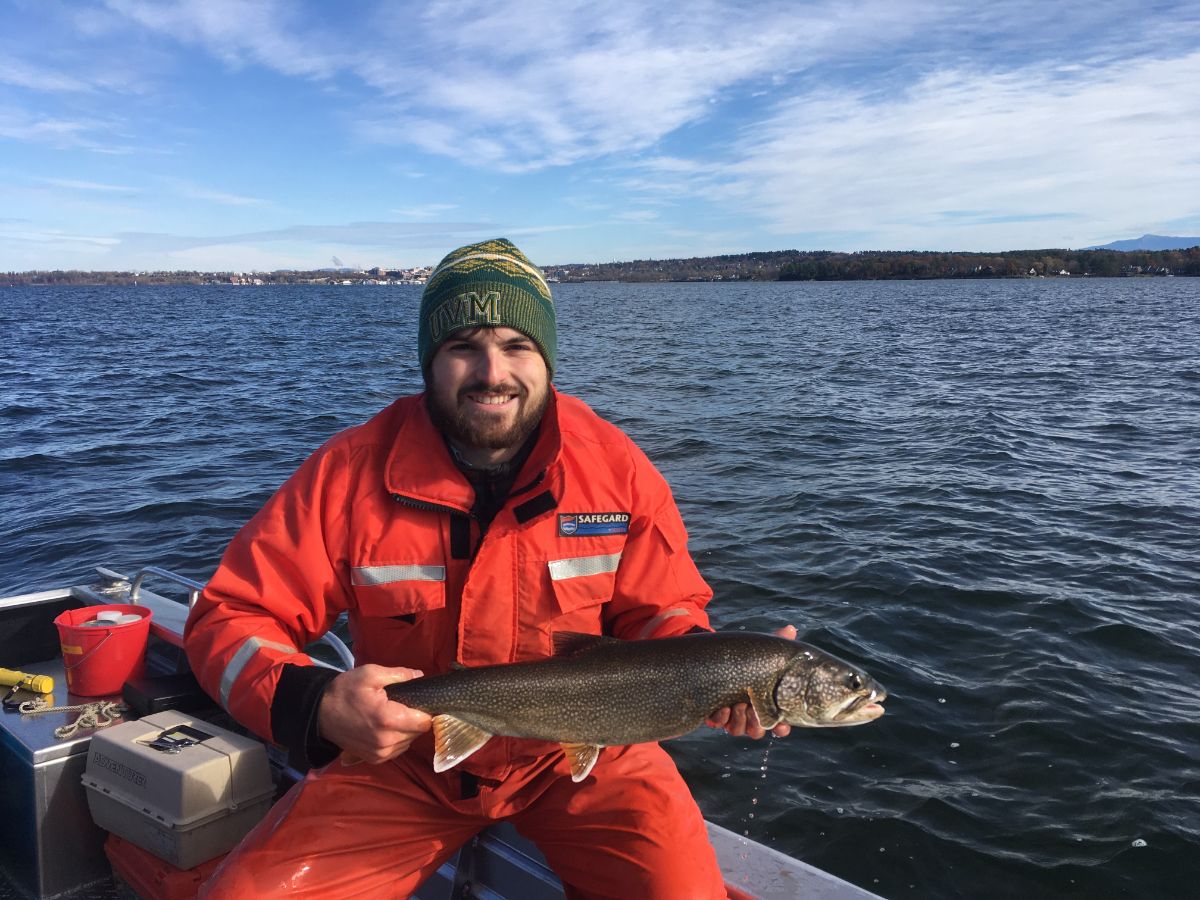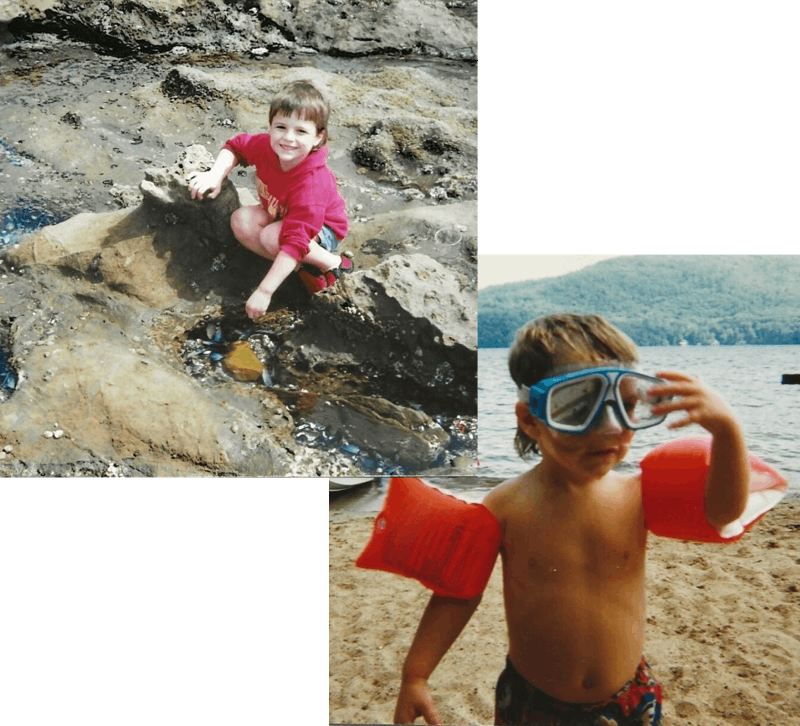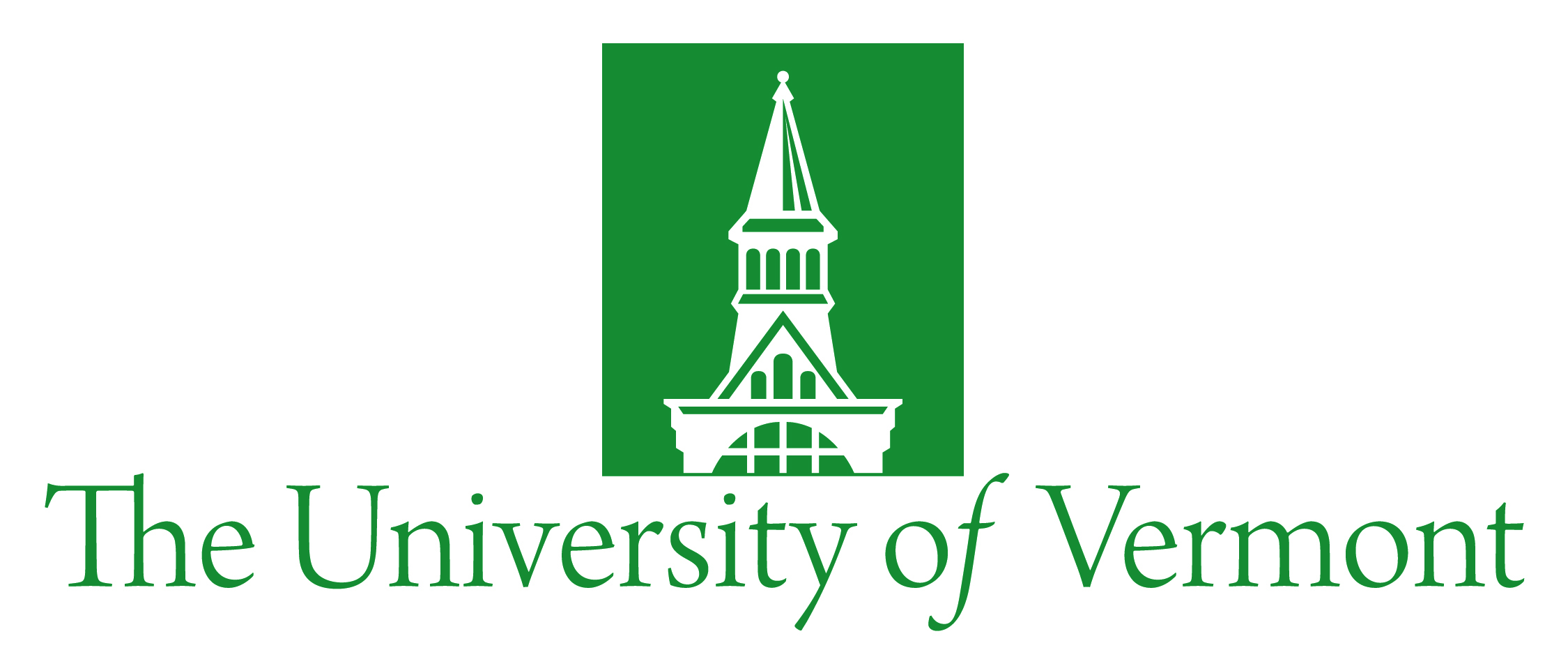My Story

Hello! My name is Matt Futia (he/him) and I'm a postdoc in the Rubenstein Ecosystem Science Laboratory at the University of Vermont (UVM) working remotely from Montrose, Colorado. Before moving to the Rocky Mountains I lived in Vermont for six years while I completed my PhD at UVM. Before that, I lived in upstate New York, where I grew up and later went on to complete my BS and MS at SUNY Brockport. Throughout my life I've always had a strong connection to the outdoors, spending as much time as I could either in the water or in the woods. This connection ultimately led me to research focused on fish conservation and restoration in which I hope to help preserve the wildlife I cherish so we can all enjoy it now and in the future.
How my passion for wildlife began

I was fortunate growing up and was exposed to nature from a young age. I lived in a suburb of Albany, NY on a dead end road with a wetland at the end. We would get all sorts of wildlife in our backyard and I can vivdly remember my parents helping my brother and me catch tadpoles that we raised until they popped out legs and we let them go. We also had family friends with a plot of land where I've spent many long winter hours sitting in the woods hunting and watching the wildlife wake up. I was also frequently around water, spending many summer days on Lake George and Saratoga Lake where I was either splashing in the water or had a fishing line in it. My favorite place to go though, was the ocean. Maybe it was the thrill of being on vacation, but I could spend hours walking along the shoreline searching for any signs of life, never knowing what creatures I might stumble upon. Regardless of the habitat, I've always appreciated the natural resources that surround us and am always ready to explore and learn more.
SUNY Brockport

My time at SUNY Brockport began in fall 2012 as an excited undergrad on an unclear path in the Environmental Science and Ecology Department. Aside from my grades, my main focus at this point was the swim team I was a part of. However, during the summer after my sophmore year my attention began to shift towards research with an internship in the Rinchard Lab. I was a part of a large project describing the food web of Lake Michigan based on fatty acid analyses. I learned a lot and enjoyed the experience, but wished for something with more time in the field rather than a project where sample collections involved walking to the freezer. Fast forward a year and I was accepted into the accelerated BS/MS program in the Environmental Science and Ecology department. I was back in Dr. Rinchard's lab, but now doing research on salmon and trout that I would collect in the field (check out the Research Tab for more details). My research quickly became my main focus although I still stayed connected with the swim team as an assistant coach and involved in the classroom as a Graduate Assistant and later an Adjuct Instructor. I was also able to mentor multiple undergrad researchers and explore other systems like the New York Finger Lakes. Through these experiences I met numerous fisheries professionals including state and federal biologists, faculty and staff in academia, and charter anglers who have often helped me collect fish. In fall 2018, I gave my thesis defense and quickly moved on to the next chapter of my life at the University of Vermont.
University of Vermont (UVM)

My dissertation in the Biology Department at UVM began in January 2019 with my research based out of the Rubenstein Ecosystem Science Laboratory advised by Dr. Ellen Marsden. My first year was incredible. I was trying to adapt to the setting as quickly as possible while taking advantage of as many opportunities as I could, especially ones in the field. But it wasn't long before COVID hit and some research got delayed. But like all wildlife, we adapted and made the best out of the situation. My dissertation compared movement and feeding ecology of naturally-produced and stocked lake trout in Lake Champlain using acoustic telemetry and diet analyses. I also enjoyed side projects such investigations in thiamine deficieny and identifying drivers of smelt polymorphism. My current role as a postdoc has expanded my research on fish movement to include lake sturgeon and walleye while I also continue studying thiamine deficiency. During my time at UVM, I've also grown to see the importance of public outreach and education. While the research I've conducted has been exciting and rewarding, I think sharing knowledge with the public is crucial for demonstrating the value of natural resources, educating others on why and how we can help protect these resources, and also how we can appreciate and benefit from them. Through my involvment with the Champlain Research Experience for Secondary Teachers (CREST) and presentations with Lake Champlain Sea Grant, I've shared my research with multiple audiences and plan to continue sharing my research with the public in the future.